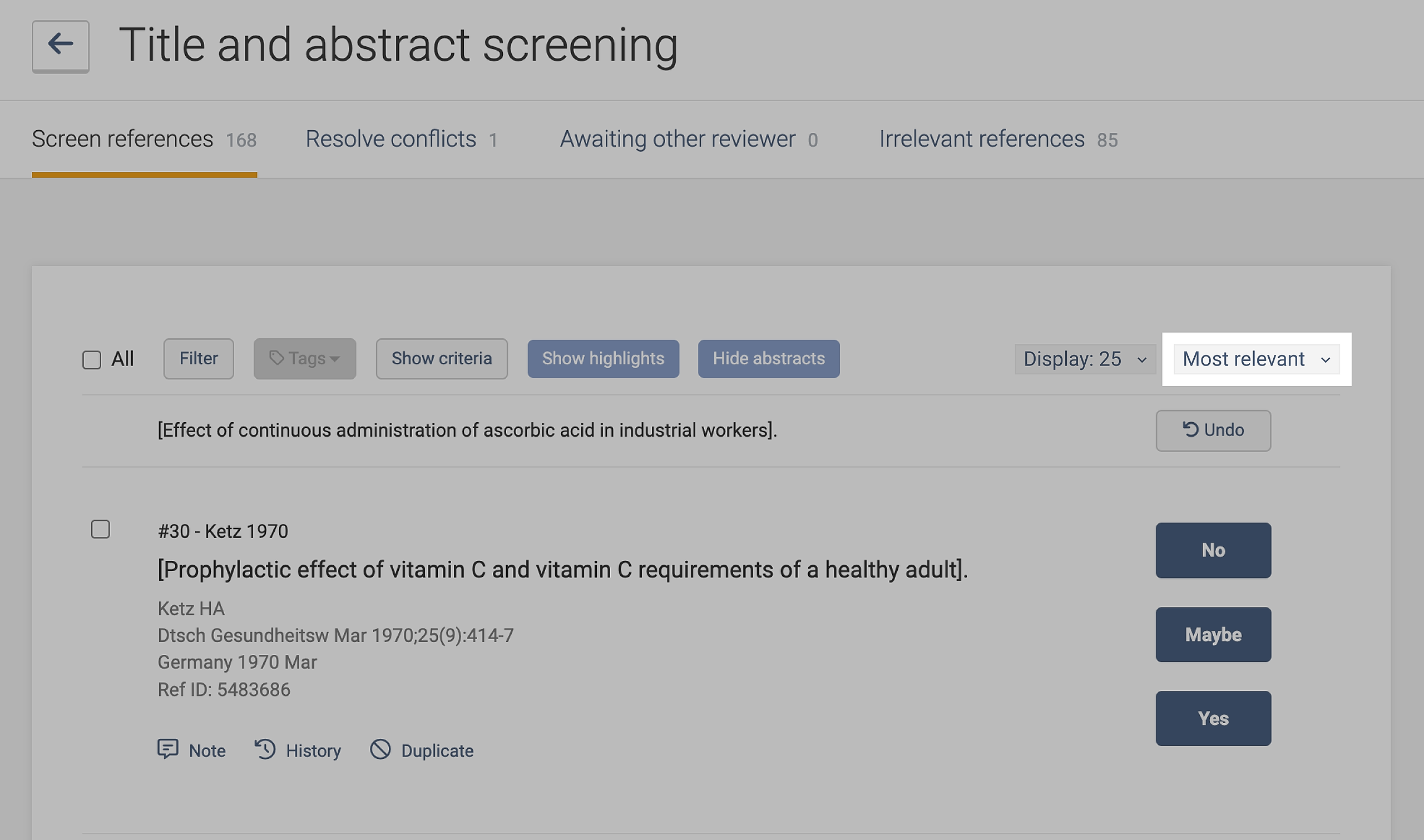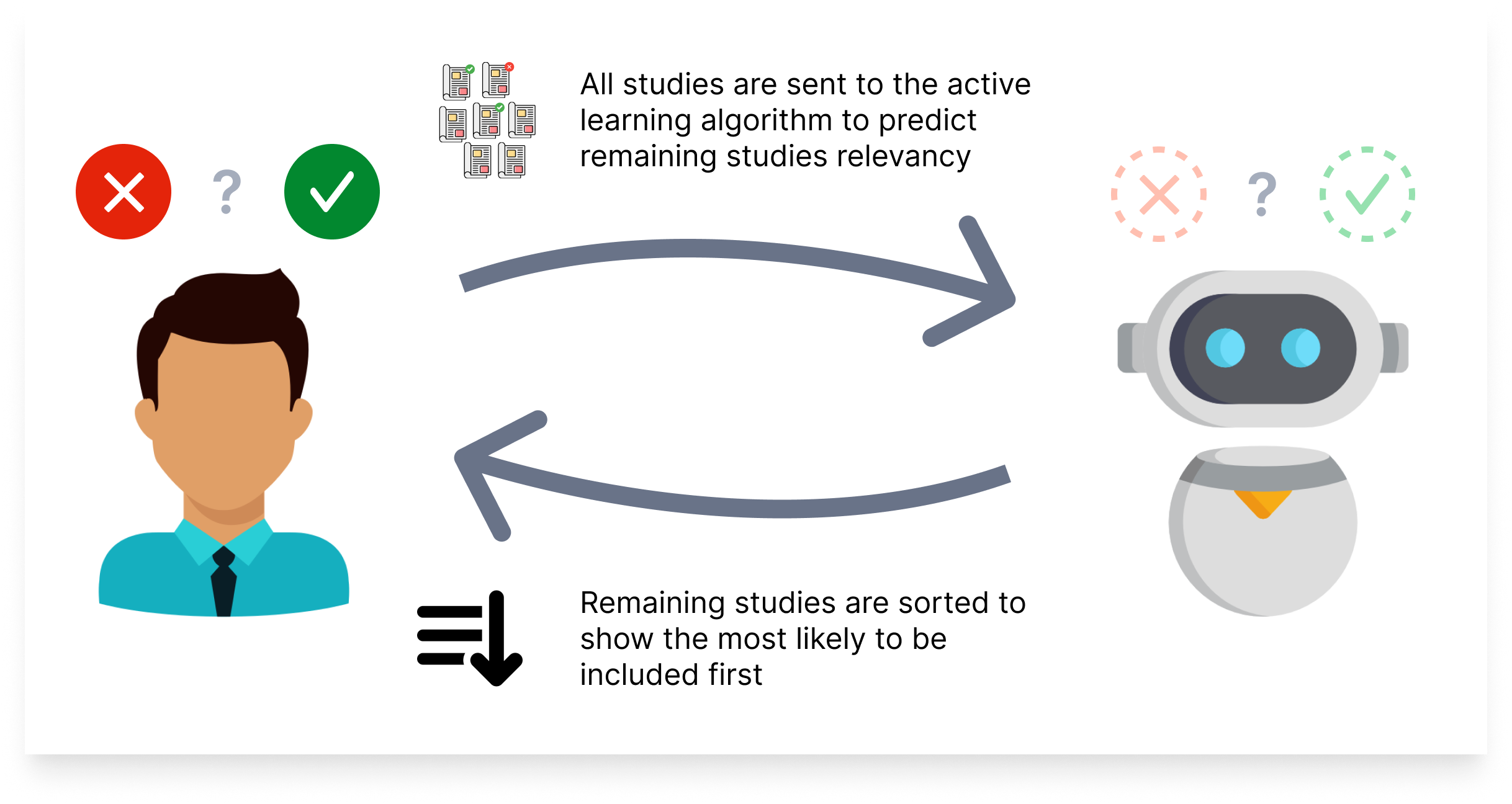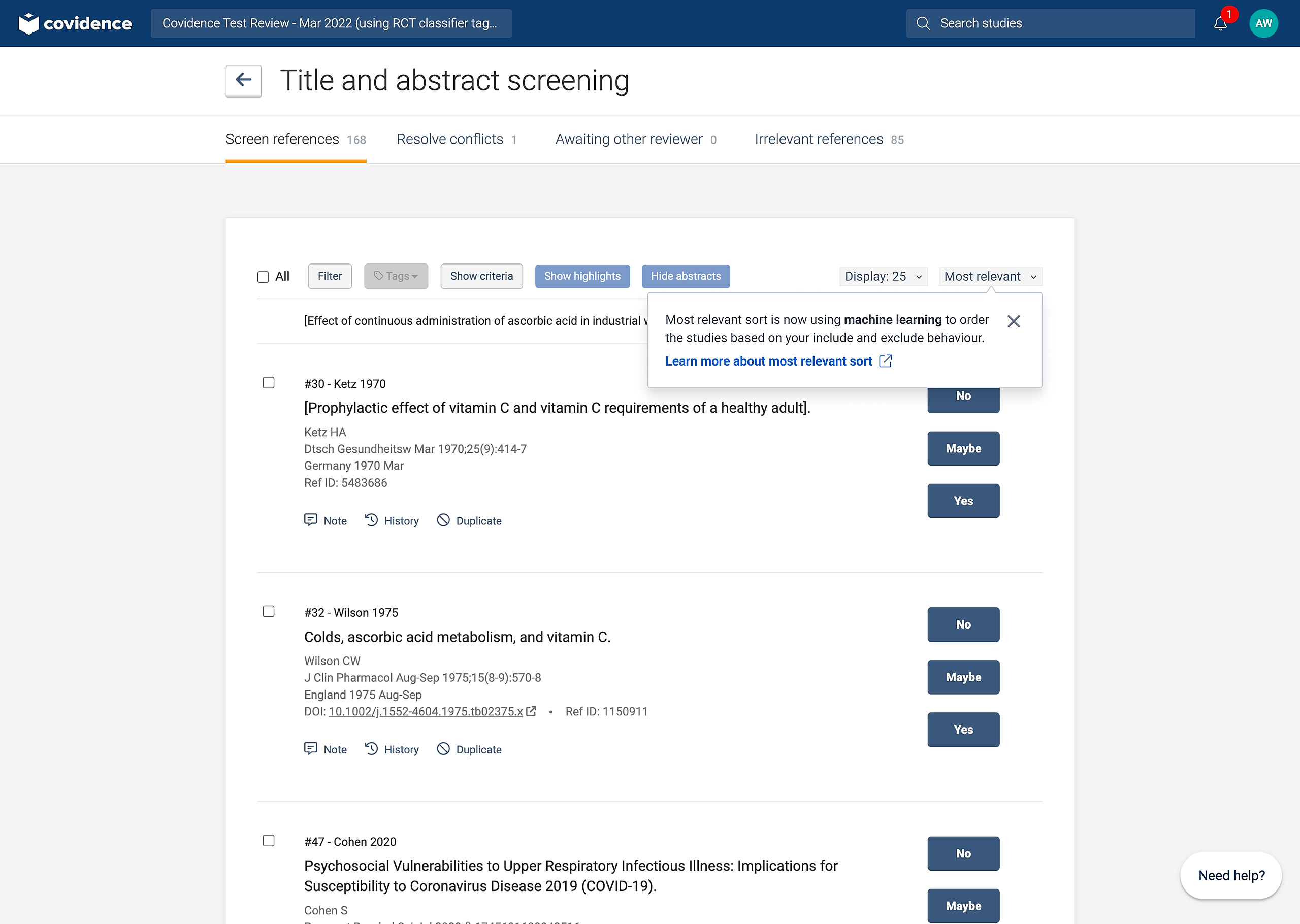Screening studies
Sorting the title & abstract screening list
Last updated on 27 Oct, 2025
Overview
When screening titles and abstracts through Covidence, you have flexibility over how you sort the list of studies.
The following options are available:
Most relevant - default
Author
Title
Most recent
Covidence number
The sorting method can be updated via the sort option at the top of the screening list:

Most relevant
When sorting by “Most relevant”, Covidence will display the studies that are most likely to be included first. This helps teams move relevant studies through to the full-text review stage sooner.
The “Most relevant” sort uses an active learning machine learning model, developed by EPPI-Centre, to identify trends in your team’s past screening behaviour on the review to determine and display the studies that are most likely to be included first. The more studies you screen, the stronger the system’s prediction will be:

Miwa 2014 describes how the active learning algorithm works and the benefits of using it to support screening.
Given the machine learning uses patterns in your team’s past screening behaviour to determine the relevancy, it won’t begin to use the predicted relevancy scores to sort until at least 25 studies have been marked as included or excluded, with at least 2 of those studies being included, and 2 of those studies being excluded.
Due to technical limitations, the “Most relevant” sort feature will not work as expected for reviews with over 150,000 studies and reviews with less than 100 studies. For these reviews, studies will order based on the order they were imported into Covidence.

Author
The author sort option will display the studies in alphabetical order, based on the studies’ author.
Title
The title sort option will display the studies in alphabetical order, based on the studies’ titles. This sorting approach is helpful during the piloting phase, as it can ensure reviewers see the same studies to screen first.
Most recent
The most recent sort displays the references most recently acted upon within the review project, rather than most recently published. This sort option allows you to focus on what’s been recently imported or actioned in the review.
If you have any feedback or suggestions on how we can improve how we sort studies for the title and abstract screening, please let us know.

